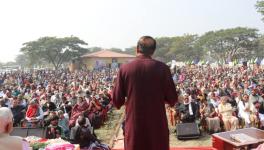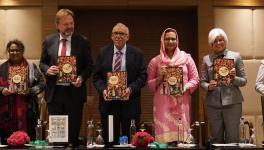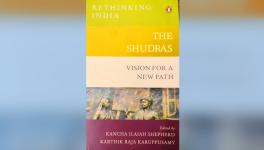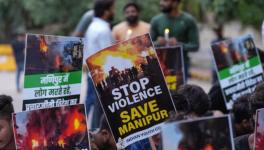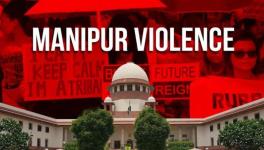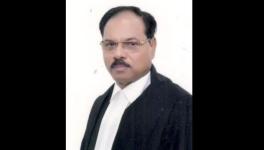When Reciting ‘The Preamble’ Was a Crime!
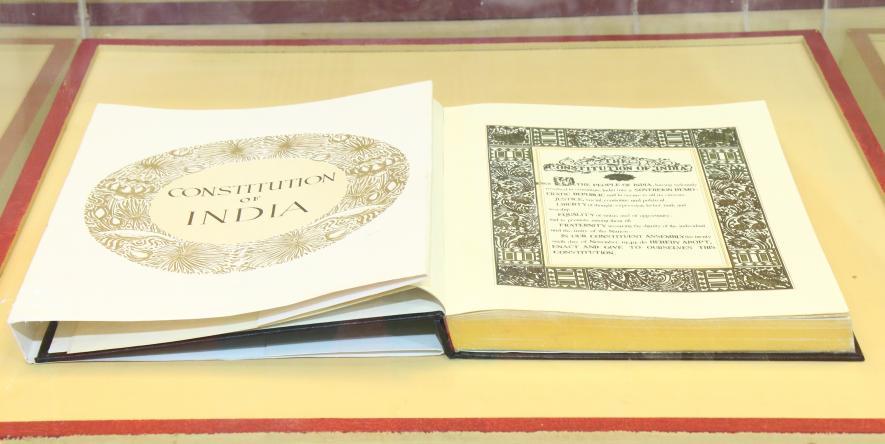
Image Credit: Wikimedia Commons
When Dalit leader Chandrasekhar Azad protested against Citizenship Amendment Act (CAA) in 2020 by reading the Preamble and flashing copies of Indian Constitution, the Delhi Police slapped several criminal cases against him. The matter reached the Delhi Court for bail. Delhi Judicial officer (judge) Kamini Lau, while hearing the bail petition of Chandrasekhar Azad, and his call for protests and dharna near Jama Masjid asked: “What is wrong with dharna? What is wrong with protesting? It is one’s constitutional right to protest.” She further asked: “Where is the violence? What is wrong with any of these posts? Who says you cannot protest? Have you read the Constitution?”
“You are behaving as if Jama Masjid is Pakistan. Even if it was Pakistan, you can go there and protest. Pakistan was a part of undivided India”, the judge told the prosecutor. She commented: “In the colonial era the protests were out on the roads. But your protest can be legal, inside the courts. Inside Parliament things which should have been said were not said and that is why people are out on the streets. We have full right to express our views but we cannot destroy our country. “
The judge also added that none of the posts of Azad were unconstitutional and reminded the prosecutor that one had the right to protest. When the prosecutor replied that permission had to be taken for protests, the judge said: “What permission? SC has said repeated use of 144 is abuse (referring to recent Kashmir case decision)”.
She said she had seen many people who had protested outside Parliament going on to become leaders and ministers later on. The judge also commented that Azad was a “budding politician” who had the right to protest. “I want you to show me under which law is it prohibited for someone to protest outside religious places”, she asked the prosecutor. While giving bail to accused, the judge said:
“…for the judges, legal persons and offices under the Constitution, the Constitution is a sacred document and if this is correct, then reading this document cannot prima facie be taken as incitement. The Preamble of the Constitution is a brief introductory statement that sets out the guiding purpose, principles and philosophy of the Indian Constitution”.
The court granted bail to the accused. She observed that while exercising the right to peaceful protest, no corresponding right of another should be violated, and said:
Of course, it goes without saying that protests lead to inconvenience but it has to be ensured that these protests do not last for a long time at public places under public use. In the instant case, the protest call was only for one day and the march was from Jama Masjid to Jantar Mantar.
Finally, Judge Lau stated that she was reminded of reverend patriot Rabindra Nath Tagore, “who is most relevant today”. The judge went on to state that during the colonial era, when the British were following the policy of divide and rule, Tagore had visualised a nation where there is no fear in the mind of people and education and enlightenment was attained by all. She then quoted from Tagore’s poem “Where the Mind is Without Fear…”.
It Means Only ‘Silence’ of Voter
After all the phases of polling for the 18th Lok Sabha, no one knows what has happened to the mind of the voter. There is silence, totally unknown until the results are out on June 4.
If the 2024 general election is indeed a battle for the Constitution, then the silences tell us as much about the critical fault lines that our polity has to confront, as it does of the possibilities of a more substantive politics of rights and equality, as stated by scholars. But the voters have understood, hopefully, that there is a great need for protecting the Constitution of India, whether call you the Bharat.
Recall that former Chief Justice of India Y.V. Chandrachud had powerfully noted, in the Minerva Mills case, that the Constitution provides us “the obligation of securing to the people liberty of thought, expression, belief, faith, and worship; equality of status and opportunity and the assurance that the dignity of the individual will at all costs be preserved”.
What happens to the very constitutional values, if remembered or forgotten, during ‘politics’, especially during elections?
It’s become a fashion to name Ambedkar and display the ‘book’, i.e, the Constitution.
“It is not just a book. The Constitution reflects the thinking of Guru Nanak and other greats. Again, holding that copy, as if everybody is ready to use and implement it,” some leaders say. Some others say: “When BJP and RSS people attack it (the Constitution), they attack the country’s history and its heart. The most important thing in this election is the mission to protect Ambedkar’s Constitution”.
At a time when the current electoral process of democracy is concluding, almost every political party is talking about the ‘Constitution’ of India, about changing or retaining it, etc.
Another serious ‘current’ issue is “400 seats in Lok Sabha”. Some campaigners, such as Congress leader Rahul Gandhi have symbolically waved a copy of the Constitution at rallies. He declared this election to be a battle for “saving the Constitution”, which is having resonance on the ground. But it is the duty of the voter, not the government or the Election Commission to protect the Constitution. During anti-CAA agitation, some citizens read out the Preamble, and they were arrested for that!
Some scholars in a popular newspaper (Yamini Aiyar and Neelanjan Sircar)
said: “The voters should understand the important distinction between constitutional principles and ordinary laws. Constitutional principles frame fundamental rights and are of a “higher order” that every citizen must obey. Ordinary laws, on the other hand, are rules, often guided by constitutional principles, that govern society. Ordinary laws, in India, regularly police our spaces. They discriminate and are used coercively by the state in ways that undermine freedoms and disempower citizens. Laws that police who you can marry, whether you can use the Internet, and what you can eat are some illustrations of this. However, these laws can also be challenged and changed. Constitutional values provide the basis for challenging discriminatory law, say the scholars.”
Constitution in Danger, Say Scholars
In a recent statement (May 30, 2024), the Prime Minister said that Congress was ranting that the Constitution was in danger, though the party had “strangled” it during the Emergency and ignored it when Sikhs were killed in the 1984 riots. The Prime Minister quoted from Maharshi Valmiki and Guru Ravidas to elaborate on BJP’s campaign about the concept of ‘virasat bhi and vikas bhi’ (heritage and development hand-in-hand). He attacked the opposition INDIA bloc, accusing it of making the Army a “weapon of politics” saying there cannot be a “bigger sin than this”. He also talked about reservations saying that the intentions of the Congress and INDIA bloc over the issue of reservation were “dangerous” …
“In the last 10 years, I have always protected reservations for SCs, STs and OBCs”, he claimed.
The Prime Minister went on to say that the intentions of Congress and INDIA bloc over the issue of reservation were “dangerous… they will scrap and tear up Ambedkar’s Constitution and throw it away”.
In Uttar Pradesh, while observing a trend, public scholar Yamini Aiyar wrote in an article, that the state was adorned with flags of B.R. Ambedkar with the tagline ‘kalam ka badshah’ (master of the pen), an allusion to the seminal role played by Ambedkar in drafting the Constitution of India. She wrote: “Dr. Ambedkar means everything to us. We don’t think it’s too easy to change the Constitution, but we believe the BJP wants to change the Constitution.”
The re-emergence of the grammar of the Constitution, the rights, and reservations, during the 2024 elections must not be misread as harking back to Mandal politics of yore. There is something far more significant at play here. The rhetoric of “changing the Constitution” challenges the very principles upon which this country was founded. And it is this that is causing dissonance among voters with the BJP’s logic of cross-caste political mobilisation.
Every voter, including Dalit voters, speaks of the Constitution and the rights. The constitutional principle of “secularism” and religious equality is a concern expressed primarily by Muslim voters, who spoke repeatedly against “Hindu-Muslim” politics.
Quoting historian Rohit De’s book, A People’s Constitution, the scholars cited above, wrote that it offers a powerful account of how ordinary citizens have mobilised around constitutional principles throughout Independent India’s history to secure rights. “Challenging social and economic deprivation and preserving equality of status is at the heart of India’s constitutional project. The Constitution matters because it protects us... it gave us reservations. Humein Samvidhaan bachana hai (the Constitution must be protected).”
Dr M Sridhar Acharyulu, LL.D., MCJ. Professor, Mahindra University, Hyderabad. The views are personal.
Get the latest reports & analysis with people's perspective on Protests, movements & deep analytical videos, discussions of the current affairs in your Telegram app. Subscribe to NewsClick's Telegram channel & get Real-Time updates on stories, as they get published on our website.









